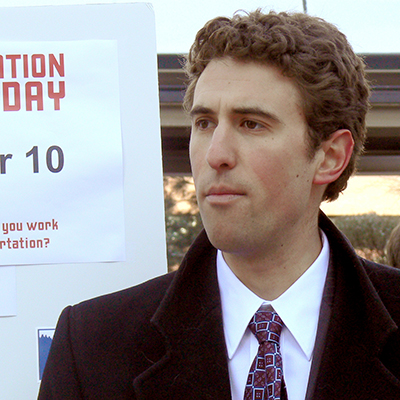
Details Emerging on US36 Public-Private Partnership Proposal
Update from Director Danny Katz on the details emerging around the US 36 Public-Private Partnership Proposal
There have been many questions raised about a proposed US 36 public-private partnership deal that the Colorado Department of Transportation is looking to sign in the next month.
I have had a chance over the last 2 days to attend a CDOT public forum on the deal in Westminster, attend a State Legislative hearing on the deal at the Capitol, and read through the summary of the deal provided by CDOT.
The picture is coming into focus, but we need some more details from CDOT to fully understand the project.
Here’s what I know so far. Transportation officials grapple with funding challenges resulting from
- A decline in the value of the state’s gas tax
- Uncertainty around federal transportation funds
- Shifting travel trends
- Pressures from the state’s growing population.
One of the corridors that has been working for over a decade to deal with this is the US 36 corridor connecting Boulder and Denver. Through a set of processes driven by the local governments along the corridor, transportation officials have reached the conclusion that the right direction for the corridor is an additional lane in each direction that would allow free access to buses and HOV cars and single-occupancy vehicles access who are willing to pay a toll. The toll and HOV policy (is HOV 2 passengers or 3) would be used as a means to ensure traffic in this new lane flowed freely thus encouranging bus and HOV use. I’ve seen estimates that the bus system alone would carry 20,000 passengers. Again, it seems the concept was to prioritize bus service along the new lanes and allow carpoolers and solo drivers, using pricing and HOV2/3 to manage flow.
Construction has begun on the first piece of this vision – building two new toll lanes and updating the current four free lanes – from roughly Westminster to Louisville. That project is being paid from public funds including federal funding and FasTrack funding (bus-rapid transit along US 36 was part of the voter-approved package). You can’t miss the construction.
For the second phase that would build two new toll lanes and update the current four free lanes from Louisville into Boulder, transportation officials, through CDOT’s High-Performance Transportation Enterprise, pursued what’s known as a public-private partnership to leverage private money to help with construction. As part of the deal, the private company would also maintain the entire new toll lane system (two lanes from Boulder to Denver, US 36 to I-25). Local government officials are advocating that the deal be completed.
Public-private partnerships – also known as PPPs – are a tool that are being considered for other road corridors. They have been used by RTD for some of the FasTracks light-rail segmets. And they are also utilized by local governments for government services.
Whether it is toll roads or other types of PPP transportation projects, it is critical that public officials ensure that the public gets the transparency, value, efficiency and safety it deserves from potential new privatized assets or private involvement in its transportation network. Government officials and the public must ask tough questions and evaluate privatization proposals rigorously to ensure that any such deals benefit the public interest. And the public needs broad transparency to ensure we get the best deal possible. Sometimes the economics of these deals are such that the upfront concession payments might not match the long-term value of the higher tolls or long-term government payments that will be borne by future generations.
Read our Principles of Privatization Here
So far we’ve seen some details like the length of this deal will be 50 years. But not enough to know that the public interest has been protected and to be able to analyze whether this is a good deal for Colorado. Certainly transparency can be improved and needs to be quickly so that the public can weigh in. The public response has demonstrated a strong desire and expectation to be able to weigh in.
The good news is that CDOT is listening and has been responding. We’re calling on CDOT to provide more clarity. I’m hopeful that in the next few days, we’ll get that.
As I get more information I’ll post it here.
Authors
Danny Katz
Executive Director, CoPIRG
Danny has been the director of CoPIRG for over a decade. Danny co-authored a groundbreaking report on the state’s transit, walking and biking needs and is a co-author of the annual “State of Recycling” report. He also helped write a 2016 Denver initiative to create a public matching campaign finance program and led the early effort to eliminate predatory payday loans in Colorado. Danny serves on the Colorado Department of Transportation's (CDOT) Efficiency and Accountability Committee, CDOT's Transit and Rail Advisory Committee, RTD's Reimagine Advisory Committee, the Denver Moves Everyone Think Tank, and the I-70 Collaborative Effort. Danny lobbies federal, state and local elected officials on transportation electrification, multimodal transportation, zero waste, consumer protection and public health issues. He appears frequently in local media outlets and is active in a number of coalitions. He resides in Denver with his family, where he enjoys biking and skiing, the neighborhood food scene and raising chickens.
